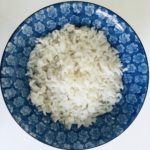The New York Times put out a pointless article yesterday entitled Jury Is Still Out on Gluten, the Latest Dietary Villain.
After reading the article more than 10 times, I still can’t figure out the writer’s point — is gluten intolerance real or not? Is the gluten-free diet easy or not? Did one of her subjects, Ms. Miller, feel better after going gluten-free? We never find out. And how about a paragraph about dog food in the middle of the whole thing? I think I understand one thing: by calling gluten a “popular dietary villain” the writer is implying that going gluten-free is a fad. She states that celiac disease is as common as 1 in 100 people (or 1 in 22 for relatives of celiacs), but that gluten intolerance is just a “belief.”
A gastroenterologist named Dr. Don W. Powell is quoted as saying: “A lot of alternative practitioners like chiropractors have picked up on it and are waving around magic silver balls, crystals and such, telling people they have gluten intolerance.” I would like to know what Dr. Powell really thinks about the prevalence of gluten intolerance, not what he thinks about chiropractors and their balls!
Joseph Murray, a well-known celiac specialist from the Mayo Clinic is quoted as saying, “There’s this ‘go blame gluten’ thing going on” he said. “It’s difficult to sort out science from the belief.” I would have asked him what the belief is — does gluten intolerance exist? The writer herself states “To be sure, whole wheat and other cereal grains that contain gluten can be hard to digest.” So, is she saying that it is real?
Credibility has not yet been given to people who test negative for celiac disease but who feel better on a gluten-free diet. Yet, as acknowledged in the article, and by research and doctors, the tests for celiac disease are not 100% accurate. So what is a person to do if they are told they do not have celiac disease, but they know they feel better on a gluten-free diet?
Maybe there is something called gluten intolerance that is not celiac disease. If a person wants to try going gluten-free after exhausting all diagnostic tests, what is the harm? I have heard of several doctors that have told their patients NOT to try a gluten-free diet because they say it is too hard and it won’t help them anyway. I will never understand this way of thinking. Why not say “Sure, try it. I hope you feel better.” Isn’t that the ultimate goal?
And yet, society (and this New York Times writer) pooh-poohs people who have chosen to eliminate gluten from their diets because there is lack of proof. The proof, of course, is in the (gluten-free) pudding.







M says
Here Here. Now if it was sugar that people were intolerant too, there would be a more positive response. Not to mention the millions of people who are lactose intolerant. Is there proof of people who are lactose intolerant? Why is gluten-intolerance so hard to accept?
morgana says
thank you so much for writing this little blurb.i really think its ridiculous the way modern physicians can know nothing at all about subjects they should.most people are sadly informed, and before i realized i was gluten sensitive i didnt understand either.i know that not eating foods with gluten has made me feel better, and thats all that counts.no doctors could help me with my chronic fatigue, headaches, and irritability and my horrible skin.now i am feeling better than ever, and i only get these symptoms again when i eat foods with more than just a little gluten.i am very lucky that i can tolerate small amounts with no side effects.this is another reason doctors or others dont believe that i even have a problem.thank you for being sensitive to every range of gluten problems 🙂
Millie Delfino says
All i have to say is thanks , to the Doctors at the Lahey Clinic they saved my LIFE , I have been on the gluten free diet for 32 years and feel great. If i do injest gluten to the bathroom i run……… Millie
alison says
As Millie points out, there are many doctors that are diagnosing gluten intolerance and celiac disease – if they could help raise the awareness amongst their peers, that would be great!
Kit Kellison says
I’m not sure the context of Dr. Murray’s quote, but he has written and lectured about the fact that many people outside the celiac diagnosis set have health problems after ingesting gluten. He calls biopsy-proven celiac disease the tip of the iceberg of gluten intolerance (meaning that many times the number of people who have actual celiac disease are gluten intolerant.
alison says
Hi Kit,
I wrote this article more than 3 years ago… many of the mainstream doctors have changed their tunes since that time, including Dr. Murray and Dr. Peter Green. Just recently have they recognized “gluten sensitivity” or “gluten intolerance” outside of the celiac diagnosis. Hooray that they are finally speaking and writing about it!